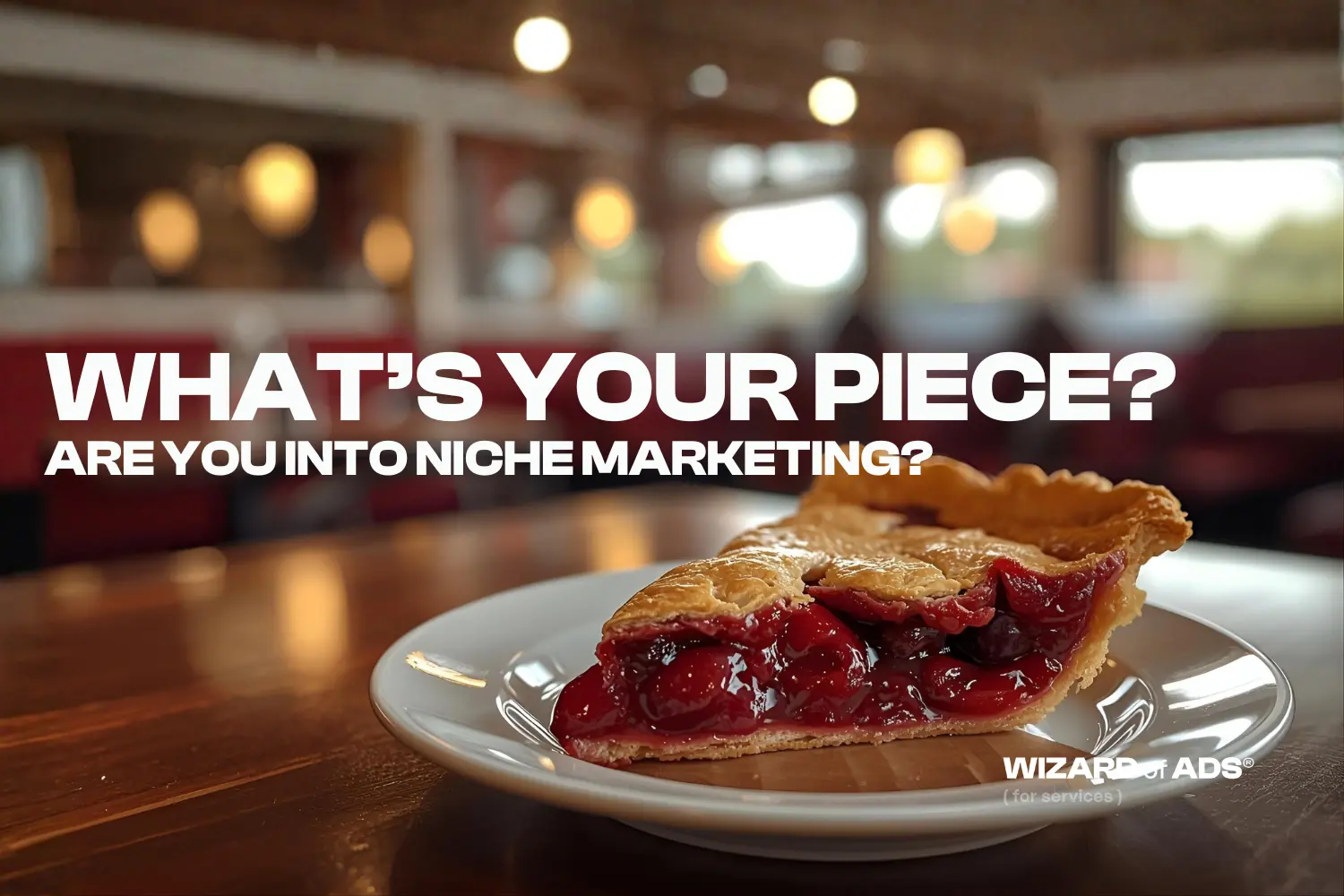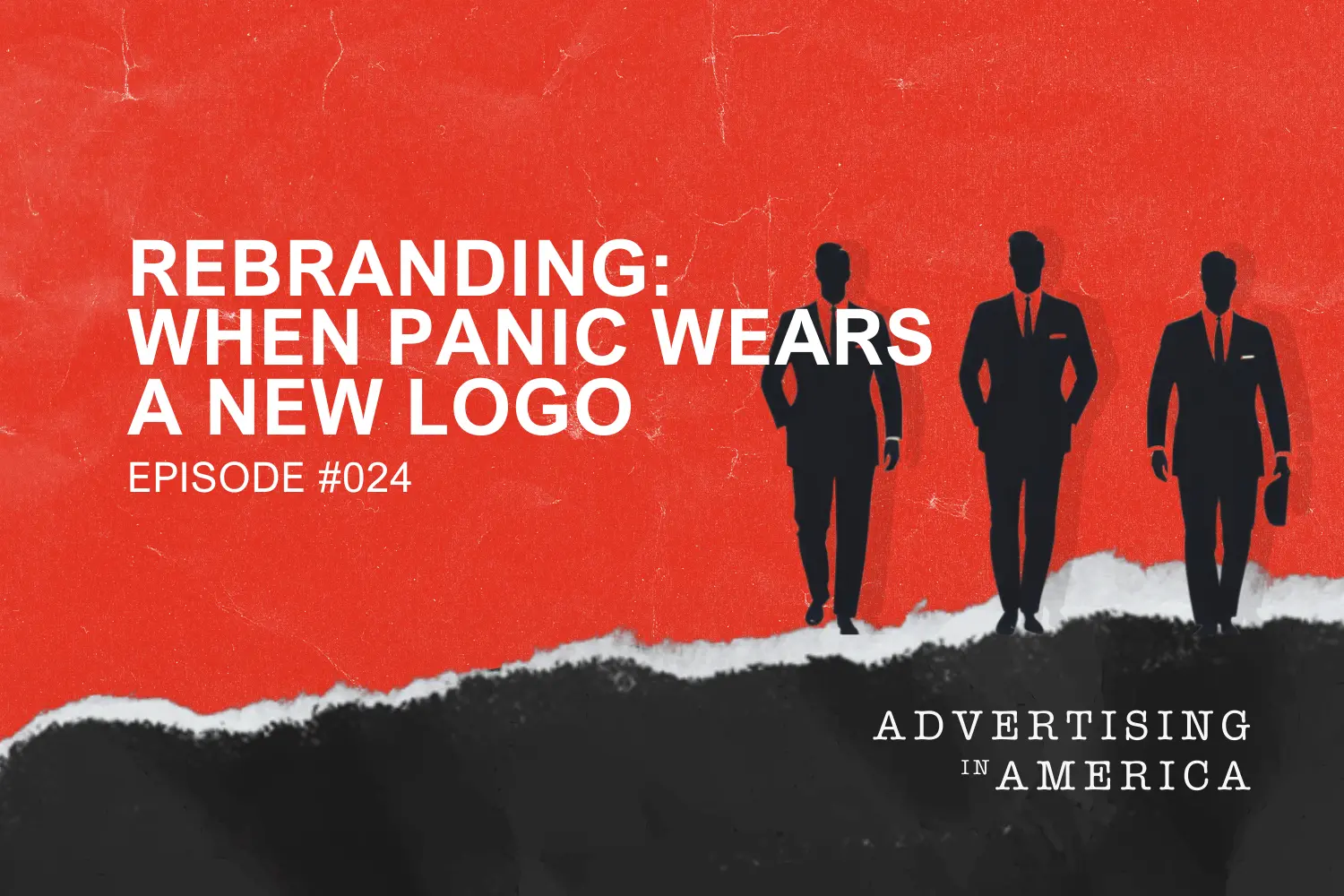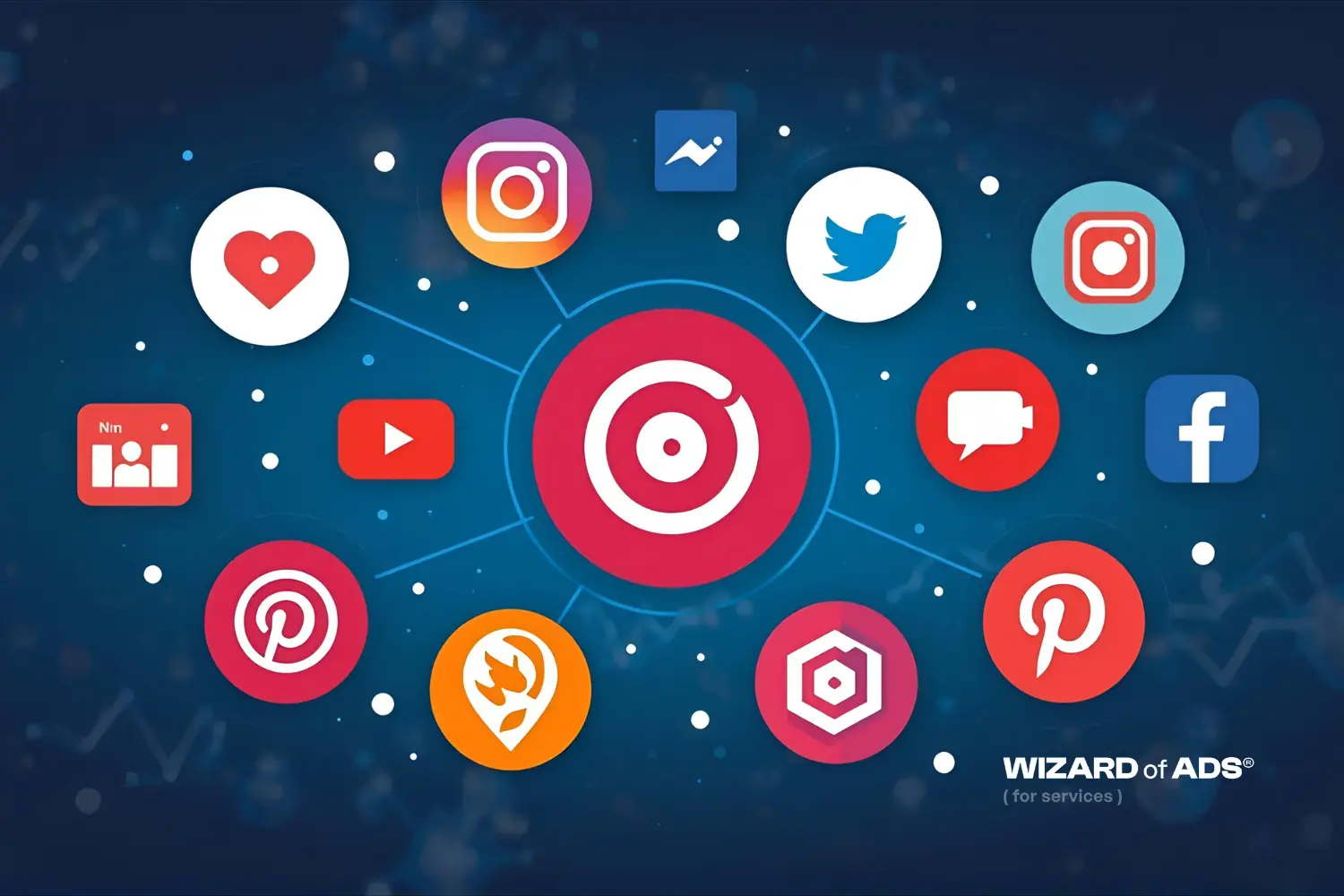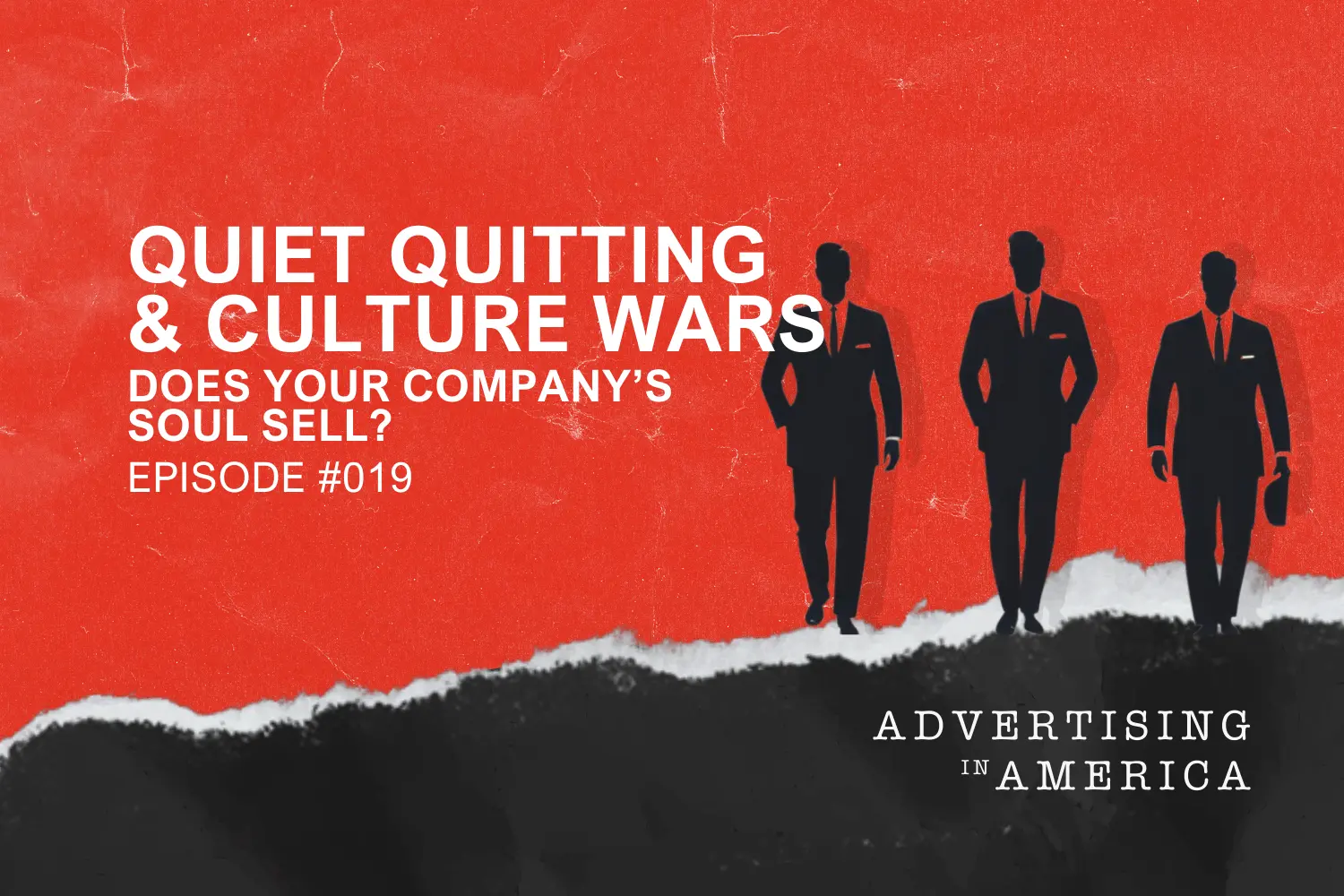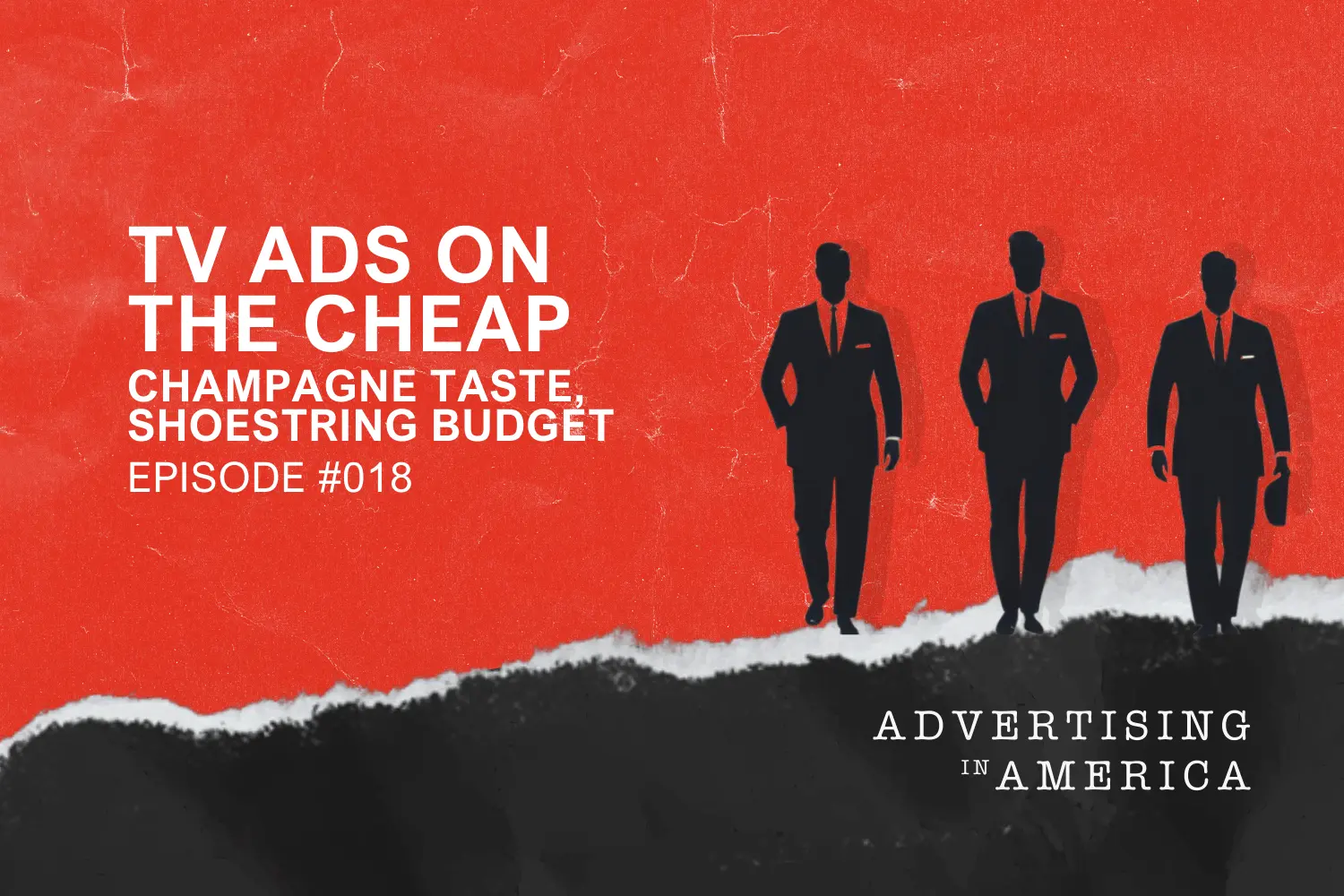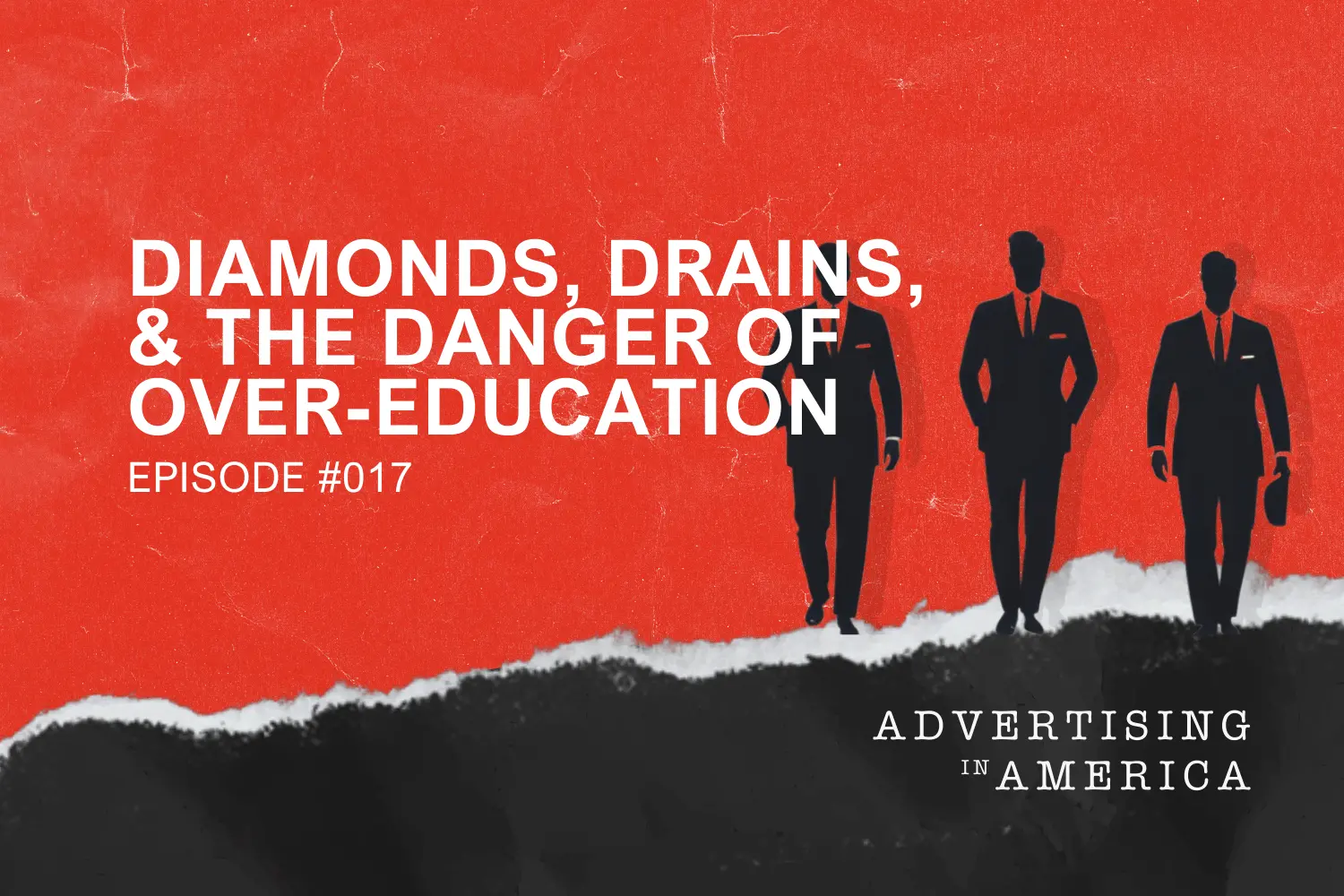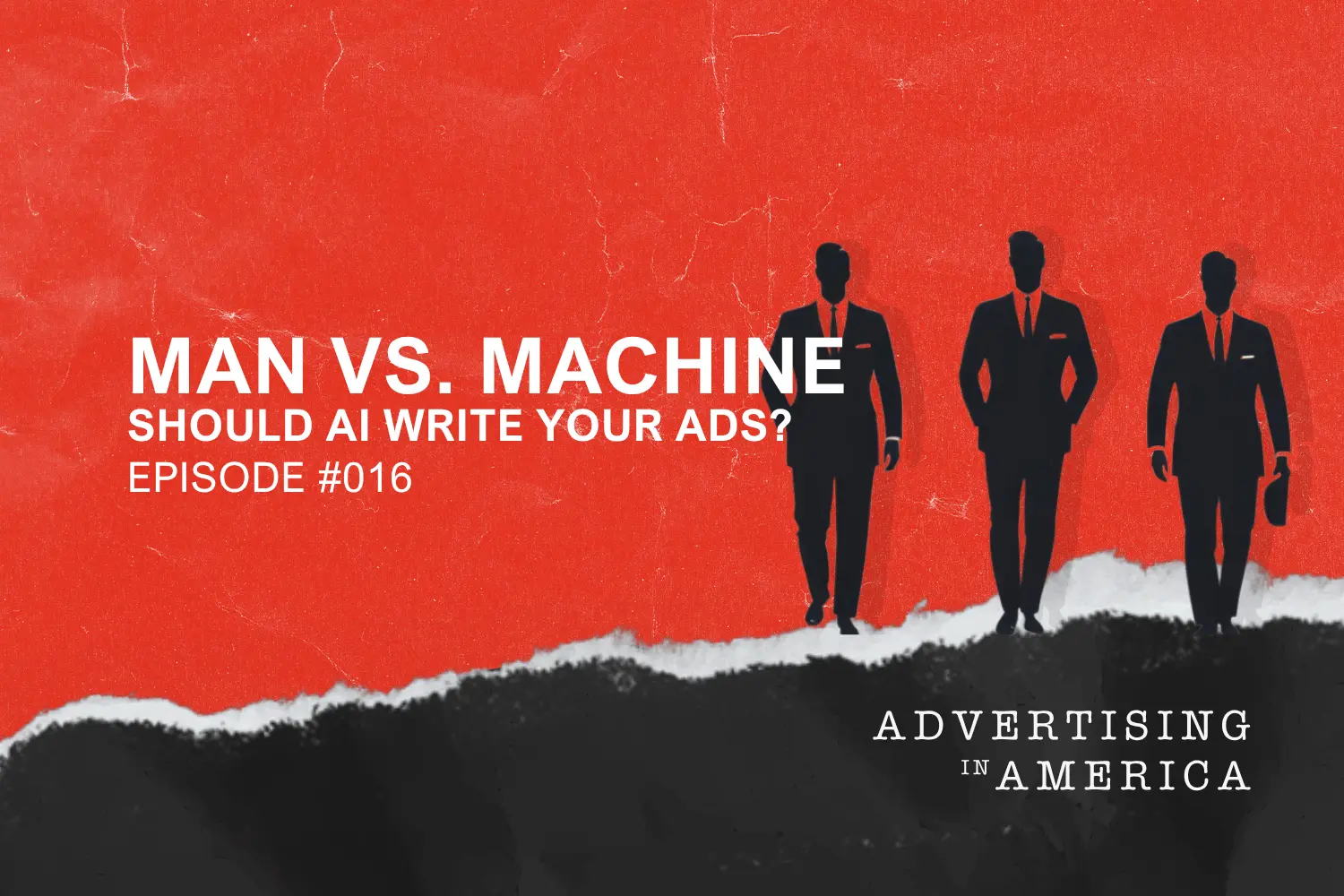
There’s a kind of fraud that comes from lack of transparency from Google and Facebook, a kind of fraud that comes from criminals stealing ad dollars from businesses, and a kind of fraud that could be happening because your digital manager isn’t paying attention. It all adds up to a lot of loss for businesses. In this episode of The Wizard’s Roundtable, we look at the different kinds of mismanagement that can plague your advertising efforts.
Transcript Lightly Edited For Clarity
Johnny Molson: Let’s let the robots do the work. What’s the worst that could happen?
Every business wants to know “Did my ad work? When somebody sees my ad, did that encourage them to make a purchase?” And that’s one of the attractive things about digital advertising. When done correctly you can plot from when somebody saw that ad all the way through to the purchase — when done correctly. But digital advertising has been plagued with ad fraud. In other words, the ads you’re paying for aren’t actually being seen by people with eyeballs and money. Some of it can be attributed to Google and Facebook, YouTube, those entities just being negligent and sloppy with their reporting
Mark Pritchard (Procter & Gamble clip):
The time and the days of giving digital a pass are over. It’s time to grow up. It’s time for action.
Johnny Molson: A lot of it though can be attributed to out and out criminals. Criminals who are making it appear that your ads are being seen by people when they’re not
News Clips:
Malicious bots posing as you viewing thousands of ads every day. These are highly sophisticated, organized criminals, and they are creating ever-evolving programs that mimic human behavior.
Johnny Molson: Now solving the problem has been put on the backs of the duopoly of Facebook and Google, but it also has to do with whether or not the person who’s managing your digital advertising is paying attention and managing it properly. After a recent article from Forbes magazine came out, there was a pretty interesting conversation that was happening around the Wizard’s Roundtable. And you are going to get a chance to eavesdrop on that right now. With us today in Tucson, Arizona is Dave Young. He was one of the original pioneers in getting businesses to blog more and put the video on their sites, thus enhancing their SEO. In Guadalajara, Mexico is Luis Castañeda, who is a digital expert who really pays attention to what’s happening with businesses. And he’s going to help explain how a business can make sure they’re not being taken advantage of and what they should look for. And I’m Johnny Molson in Springfield, Illinois. And let’s start at the start. Does digital advertising have a fraud problem?

Luis Castañeda: There is fraud, you know, I’m not a fraud denier. But also I think fraud, as it has existed, is not unique to internet advertising. In print media work you’ll have lots of stories of magazines being printed but never distributed and things like that. So in my opinion, most of the fraud is due to poor management. When I started selling advertising, I worked for a guy called Chris Lund and he taught me that the responsibility to prove results is from the publisher, not from the client. And this really makes it very important for his business to prove value, to prove results to his clients. And I really think that is a key important aspect of what I do. And I take it to heart that I am responsible for showing my clients the value of internet advertising.
Johnny Molson: Well, I guess would it be fair to say that fraud is a pretty charged word? I would say some of that can be at least attributed to the fact that there are just unintended bots that are hitting these websites. Google and Facebook and the others don’t know if it’s a human or not. And then there’s blatant fraud where people are just ticking the things up. So I think it’s important to know that distinction, but Luis, for a business owner, what should they be looking for that would say, “Wait a minute, something’s not adding up here…”
Luis Castañeda: In my experience, every advertising campaign needs to have an objective. Okay. So once you know what the objective is, obviously you need to make sure how do you measure the result? How do you know if it works or not? And that will be the first step. Second step is the follow-up. I try to use the Deming Cycle approach: Plan, Do, Check, Act. And I think most of us fail at the Acting part. You know, we do the Plan, we do the Do, we do the Check, but then it’s like “Okay, I got the report, fine.”
Johnny Molson: Right.
Luis Castañeda: But you need to go into the details and take action on that. And that’s how I think you can find those peculiarities or those outliers. Okay. So I think it is important based on your objectives to see what is helping to reach the objective? What is not? Or also based on your web traffic — which is in my case the medium that we use to capture the leads or the sales — see which sources of traffic are bringing results? And which ones are behaving where they only stay for one second? You know something’s wrong. Either my site is wrong or something is wrong with the person that visited my site.
Johnny Molson: Okay. So time spent on the site might be an indicator that you’re getting hit by some bots. Is that fair?
Luis Castañeda: That’s fair to say that that would be one indicator. Or as I mentioned before, look for outliers. Because maybe not even bots, let’s forget about the bots. Let’s focus on what is working, what is not? Because even if it is a valid website, you know, The New York Times is sending traffic to my website, but it’s not working… Maybe it isn’t getting me leads, it’s not getting people to download my white paper or to see my video, or they stay less time than anyone else. So you have to go after those signals. And then regardless of it’s a bot or not — start making decisions to say “No, I don’t want to be bringing traffic from those sources.”
Dave Young: This conversation started on Facebook in our private group discussing an article in Forbes. The headline said, “When big brands stopped spending on digital ads, nothing happened. Why?” And it talked about Procter & Gamble. They made the decision to shut off $200 million in their digital ad spend and they saw no change in sales. And Uber shut off 120 million in their ad spend and didn’t see any change, no drop in meaningful numbers. It turns out that a whole lot of it was fraud. And I think Luis’s point about it being mismanagement is a very valid point. And I think sometimes some of these gigantic companies just have barrels of money that somebody is responsible for getting rid of in some way, right. They’re just like “Shovel it out the door, cause it’s your budget and you have to spend it.”
Luis Castañeda: Exactly.
Dave Young: And you end up making horrendous decisions. And if a local business owner is not careful… I mean there was one point in that article that talks about somebody that was spending dollars even in their AdWords on what Google calls the Display Network, right? And the definition of that is that your ads are showing up on lots of other websites, as opposed to just Google searches, where there’s obvious ads, right? So now your ads are showing up on who knows, right? And you can control that. You can actually go in and tell Google. “No, Let’s not do that site. Let’s not do that site and let’s not do this site.” And I think the way the story went she shut off the display network and her traffic dropped by 118000% or something. I mean, a huge amount of her traffic was coming from the display network and her ads, but they weren’t sticking around. And they were all coming from Android devices. And so it was some form of bots clicking on those ads and coming to her website. They never going to be sales. It wouldn’t matter what kind of landing page you had. Those clicks were not gonna turn into sales anyway,
Luis Castañeda: For me, the most important part is you have to test because it is so cheap to do a test. You can run a one-week test and find out for yourself. You know, the guy on the article was right. It didn’t work perfect. Now you can tell, could prove it with facts. It didn’t work or it may work. So you need to start digging, finding what is it that works for you, and continue doing it and learn from that. Why is this working? How can I extrapolate these studies working into other areas?
Johnny Molson: Right. Luis, you’ve said something a couple of times that I think is really interesting. And I want to make sure we expand on it a little bit. You have to have a clear understanding of what your objective is. Is part of the issue that business’s objective is “I just want some clicks and people come to my website,” and they’re not clear on the various levers that digital can pull.
Luis Castañeda: There are two answers to that, Johnny. And that is a great question because yes, I think many times, you know, “I just want to do Google ads because my competition is doing it and I don’t want to fall behind.” And in my opinion, the objective is very easy. You know, do I want to get more leads? Why want to make more sales? Do I want to get more calls? Do I want people to see my new video? That will be your objective, but that’s the first part. And as I mentioned before, the second part is how you’re going to measure that objective. And also that is something that I see a lot with my customers. I have a customer that was investing a lot of money, trying to get leads and they were not measuring. I was talking to them to a Google customer that I have, and he was telling me “If you don’t have the measurement of the result, then how could you judge?” And it is like blindly trying to put a stick on a map and finding Chicago, you know, it’s impossible. So these are the two steps. Okay. What is your objective? And second, make sure that you can measure it. Then you can tell. And there is another aspect to what in the internet world we call conversions. But there is another one that is called micro-conversions. Okay, so what is a micro-conversion? I didn’t do the objective. You know, I didn’t click for the lead. But what will put them closer to making a lead? So my objective is to try to get the lead. I didn’t get the lead, but they watched the video. They downloaded the white page. That’s a micro-conversion. So you can have a second-tier judgment. Okay. I’m not getting the conversions but, I’m getting micro conversions. Okay, it’s not that bad.
Johnny Molson: Luis that’s so compelling that you know, that small gap between “I’m doing Google AdWords, because I want people to come to my website,” which isn’t an objective. Coming to my website isn’t necessarily an objective. Coming to my website to watch a video is an objective that you can quantify, that you can measure, and it actually is causing something to happen. And I think businesses probably really need to zero in on that concept and give some thought as to what is it you’re trying to make happen with your AdWords.
Luis Castañeda: Right. If you want to add another layer to that, many websites don’t tell you what to do. You know, there is a saying that if you don’t tell me what you want from me, chances are that I will not do it. So I got to the website, it costs you, what do you want me to do? “Give Me a call to send you a quote.” “Send us an email to make an appointment.” So it’s the call to action. So we need to have a clear call to action on the website so that he’s going to help people say, Oh, okay. You know, David wants me to send him an email to set up an appointment. Perfect.
Dave Young: Our friends Jeffrey and Bryan Eisenberg said years ago, this is early 2000, the three questions that every website needs to answer. This is one where, once you think about it, it’s so obvious. And it’s something that they’ve been preaching for years. And it’s the lens that I always use when I’m looking at a website: Who’s on the site? What do you want them to do? And what do they need to know in order to do that thing that you want them to do? And the tricky part is that all three questions have multiple answers. Who’s on the site? That can be a variety of people. It could be an existing customer. It could be a prospective customer. It could be one demographic or another. And then what do you want them to do? Micro conversion? Or do we want them to jump all the way to the bottom of the gravity well and become a full-paying customer? And I think the most important one is what do they need to know in order to do that? Like, what do they need to know about this video you want them to watch? What do you need them to know about how you’re going to respond once they raise their hand and say, “I want to do business with you,” right? So if you use those three questions as sort of a lens, you can make great progress on making your ads work better because your website’s going to work better. It’s going to convert more wherever you’re doing your ads. Whether it’s an AdWord or an ad that you’ve mentioned the domain on the radio, right. It’s going to do better if you answer those three questions or keep them in mind as you’re building it.
Luis Castañeda: And that’s another great point, David, because this is a team effort. It’s not only the advertising and it’s not only the website. It’s both of them working together. Because as you know, I can have the best advertising on radio, but if I fumble, when I got the call, no one answers. It takes too long to answer, or the person is rude, there’s no sales. And who are you going to blame? “The campaign didn’t work…” No, the problem is inside.
Johnny Molson: Absolutely. What would you recommend that a business looks for when they are hiring somebody to manage and watch over their campaign? I mean, just short of calling Luis Castañeda, which is what they should do. What things would give a business owner an indication of, “Hey, this person is missing something.”
Luis Castañeda: Well, the integration between the advertising and the website, you know..
Johnny Molson: Connect the dots, yeah.
Luis Castañeda: Connecting the dots, that’s the key. Making sure that, “Okay. He asked for my objective. He understood my objective. He made sure that I am measuring my objective. He knows how to do it.” And not only that, also connecting the dots of that objective to the Google ads campaign. Because the beauty of connecting the dots is the machine learning from Google. You know, Google has made a lot of problems with machine learning, and it is amazing all the magic that can happen once Google knows who are the ones that send you a lead, it’s amazing. It works. You’ll have to look for those little details. It’s not only how much you want to spend, where you want to be, and which keywords. No, you know, that’s basic. That’s wasting your time unless you only want traffic. But they need to understand your objective. They need to measure it. And they need to make sure that you can follow up with Google Ads, that objective. So for me, those would be the key areas for people that want to understand what you’re trying to achieve and make sure that they can measure it. For me, the way I see the internet and what is important is it is cheap to test. It’s cheap to experiment. It is cheap to try so go out and try. The worst thing that can happen is it doesn’t work, and fine, you move on. But also as we mentioned before we started the roundtable, the message is what is important. It’s not the medium. If you have a good message, if you have a coherent strategy, the medium is not the important thing.
Dave Young: I would just circle back around to the Uber situation. And I think mismanagement in terms of. One of the things we didn’t talk about was the nature of the mismanagement that caused them to lose millions in fraud was that they weren’t measuring success by the right metric. Right? So Luis, when you talk about, are we measuring some kind of a micro-conversion. Well somebody at Uber thought that downloading their app was how to measure success, when really measuring success for them would be, are people paying for rides,? But they put this metric on downloading apps and the company that they contracted with said, “Oh, we’re just judged on and paid on how many people we can get to download the Uber app, regardless of whether they actually go for a ride.”And so that’s where a lot of their fraud came from was this attribution fraud. And other apps that would trick you into downloading the Uber app. And now the ad company got paid, ka-ching, because you downloaded the app, whether you use it or not, whether you had an account or not, you now downloaded the app. And so Uber’s paying for that. And I think it was a huge case of measuring the wrong thing. And they’re measuring something that’s not really how they grew, right? That’s not what made Uber, Uber. It was the fact that you could go from the airport to your house or go from one bar to another, or here to there. It wasn’t about “I need an app.” It was, “I need a ride.” And when they started measuring downloads, that’s the wrong thing to measure. And you open yourself up to people just taking advantage of that.
Luis Castañeda: And that is a great point, David, because you should always have a companion metric. You know, if I’m gonna pay my salespeople by the volume of sales they make this month, you know, chances are that they are going to offer a lot of discounts. You know, they are going to be offering a 20% discount and say “Oh I sold ten thousand at the end of the month.” I’m going to have a lot of sales, but with a huge discount. Okay. So that’s why you need to have a companion metric, you know? My goal might be to make more sales this month, but we need to have at least this much profit. Okay. So going back to Uber. Let’s assume that they want it to grow based on the number of downloads. Perfect. Let’s have a companion metric that downloads with at least one trip. Then that’s a customer.
Dave Young: Yeah. We’re not going to pay you if the download that you got us, doesn’t spend some money on a ride.
Johnny Molson: Luis and Dave, and a whole host of digital experts at Wizard of Ads are worth getting to know, because we are paid when ads work and when businesses succeed. We’re not paid on which media we buy. All we’re interested in is did the thing do what we thought it was going to do? If you’d like to get in touch with us, here are some emails that you should know.

